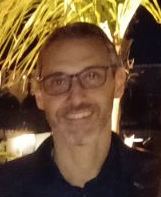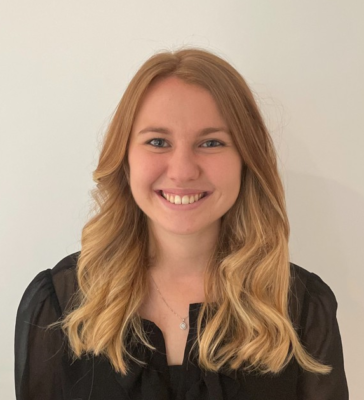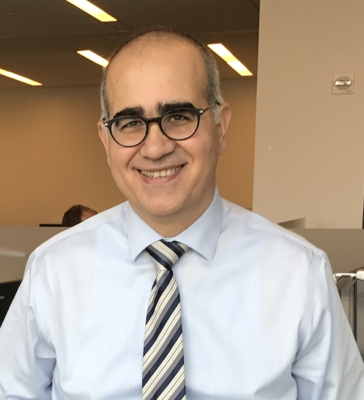
Markos E. Rigos
Current Employer/Organisation Name
Ilioupolis Administrative District and Ariston Psychometrics
What have you been doing since leaving Exeter, and what are you doing now?
Studywise, after my Exeter Educational Psychology course I got a PhD in Psychology and then an accredited qualification in Psychodynamic Body Psychotherapy. Work wise, nowadays I manage a public psychology service providing for adolescents and adults, I supervise psychology students and colleagues, I develop research, apply psychometrics, teach scientific methodology and practice psychotherapy.
Why did you choose this career? And what do you enjoy most about your work?
I chose this career because forming psychologically substantial and nourishing relationships, especially with young people and adults who seek to develop their potential and overcome their psychological hindrances is what I truly enjoy and have been inclined to do in my life from early on. Releasing emotional blockages or cognitive entanglements while experiencing and contributing to the energetic field within psychotherapeutic sessions can be a deeply personal, transcendental and life changing experience. Furthermore, I enjoy teaching students and colleagues and develop applied scientific initiatives.
Please tell us if you were a member of any societies, groups or sports clubs?
Being a student at the M.Ed. Psych. course was pretty intensive. So, going back to George house (a University residence of rural architectural style), meeting my flatmates and enjoying our time together was both relaxing and fun. For me, George House was a little society of its own.
What did you enjoy most about your programme and what was the biggest highlight?
The M.Ed. in Educational Psychology was team-based and applied and thus tailored to the work I would have to do as a School Psychologist. It was awesome that I had been admitted in this course. The tutors, coming from different organizations had a variety of experiences and a zest to share their knowledge. The team work among students interested to build similar skills, the conversations, the projects and the fun a group can create were all mostly rewarding. A few highlights occurred during that year. Perhaps the presentation of a team project to students of similar courses from other Universities and the fun that followed later on that evening is my most unforgettable memory.
What did you enjoy most about studying here?
The facilities, the buildings, the architecture, the countryside, the accommodation, the city, the staff, the facilitation I received. So many things!
Why did you choose to study at Exeter?
Apart from the course which was exactly what I needed, I should underline that I was born and raised in Athens, Greece and that I have some English blood. Thus I longed to visit England, get myself baptized in the English culture and people. So I chose Devonshire and Exeter; and Exeter chose me and it was a once in a lifetime experience! Coming from a large urban city meant that studying within Exeter’s wonderful countryside was good for my moods, heart and spirit.
What skills and experiences have been most useful for your career?
The Exeter experience where I visited various educational and psychological settings and got familiar with all major developmental, educational, and cognitive needs was by far the most useful experience for my career in working with children, adolescents, parents and school staff. I didn’t quite know it back then but my Exeter dissertation was the preamble to my future PhD studies and the basis of my current research interests.
What advice would you give to a current student who wishes to pursue your career?
There are two major aspects one should look for while pursuing one’s career: The content of one’s studies and the way these studies are delivered. Exeter’s Educational Psychology postgraduate course offered substantial and useful qualities in both these respects. In this way, nowadays, not only do I use the skills I was taught but having diverted from my original plans towards a more psychotherapeutically oriented practice I can still generalise the ‘how’ aspect of my studies such as the team-work, the systemic approach and the developmental basis.
What are your plans for the future?
Lately I focus on using my psychotherapy experience to develop research useful to colleagues and clients within psychotherapy sessions. This applied research endeavour combines therapeutic, teaching, scientific and collaborating components which makes it challenging and fulfilling. Applying and developing this multifaceted set of skills in educational and academic contexts may be what lies ahead.

